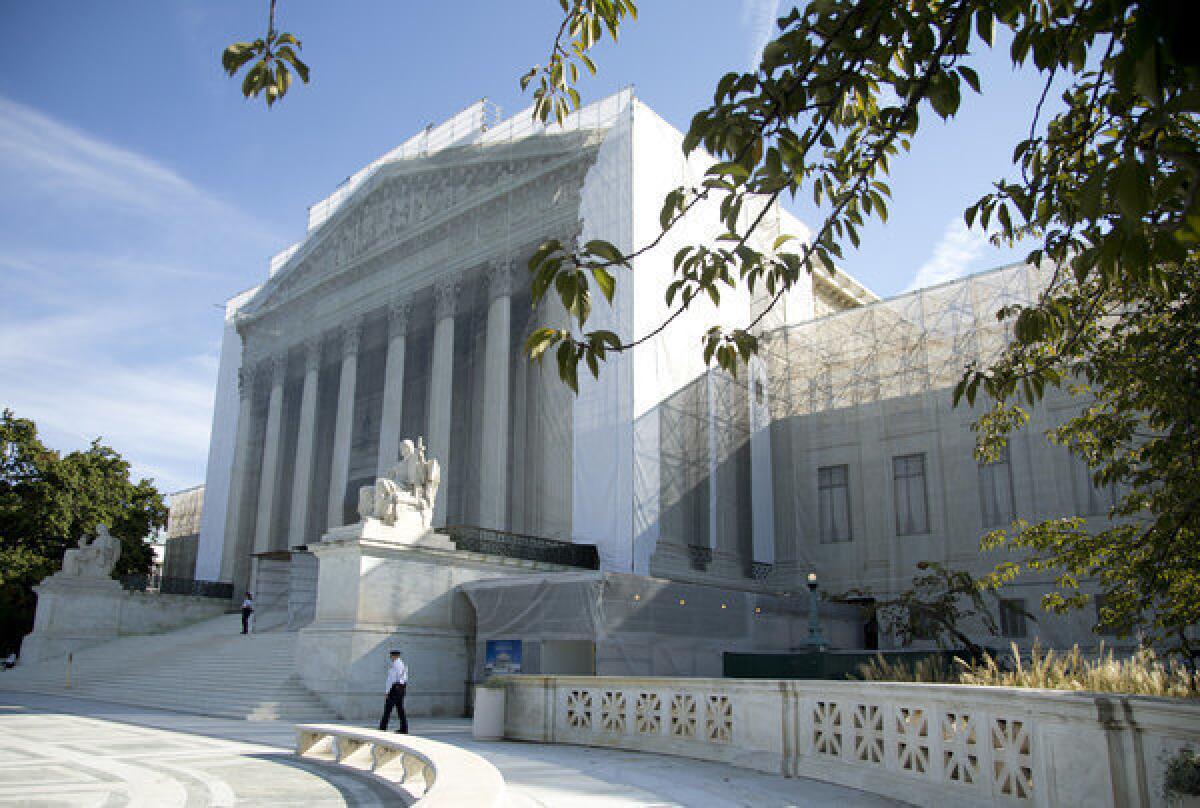Supreme Court denies RNC bid to end voter fraud consent decree

- Share via
WASHINGTON — The Supreme Court has refused to lift a 30-year consent decree that bars the Republican National Committee from targeting racial and ethnic minorities in its efforts to end fraudulent voting.
The justices without comment turned down an appeal from RNC lawyers who said the decree has become “antiquated” and is “increasingly used as political weapon” by Democrats during national campaigns.
For their part, lawyers for the Democratic National Committee had argued that recent campaigns show the “consent degree remains necessary today.”
The court’s action is a victory for the DNC, and it comes after an election year in which the two parties regularly exchanged charges over “voter fraud” and “voter intimidation.” But most of the recent battles have been fought on the state level, and it is not clear whether the long-standing consent decree has had much impact.
The case began in 1981 when the RNC created a “national ballot security task force” that, among other things, undertook mailing campaigns targeted at black and Latino neighborhoods in New Jersey. If mailers were returned undelivered, party activists put those voters on a list to be challenged if they showed up to cast a ballot. In addition, the party was alleged to have hired off-duty law enforcement officers to “patrol” minority neighborhoods on election day.
The DNC sued the RNC in federal court, alleging its activities violated the Voting Rights Act and were intended to suppress voting among minorities. Rather than fight the charges in a trial, the RNC agreed to a consent decree promising to “refrain from undertaking any ballot security activities … directed toward [election] districts that have a substantial proportion of racial or ethnic minority populations.”
The consent decree has remained in effect, and DNC lawyers say they have gone to court in states such as Arkansas, Kentucky, Louisiana and Pennsylvania to challenge Republican activities that appear to target mostly black precincts. Both sides agree, however, that the consent decree does not forbid “normal poll watching” by Republican officials.
The RNC has tried repeatedly to have the consent decree lifted, contending it interferes with its efforts to combat voter fraud. But a federal judge in New Jersey in 2009 ruled that it should remain in effect, and the U.S. Court of Appeals agreed last year.
In appealing to the Supreme Court, the RNC’s lawyers cited past decisions by the justices that ended long-standing court orders involving school desegregation and prison overcrowding. But the justices with no dissent dismissed the appeal in the case of RNC vs. DNC.
Follow Politics Now on Twitter and Facebook.
More to Read
Sign up for Essential California
The most important California stories and recommendations in your inbox every morning.
You may occasionally receive promotional content from the Los Angeles Times.











